Unit 6 Overview: Teatro y poesía del siglo XX
5 min read•june 18, 2024
Sylvia Rodriguez
A
Alejandra Ramos
AP Spanish Literature 💃🏽
24 resourcesSee Units
AP Spanish Literature and Culture Unit 6 focuses on 20th-century poetry and theater. This unit explores the works of various Spanish and Latin American poets and playwrights who challenged traditional literary conventions and experimented with new forms and techniques.
Historical Context of Unit 6
The 20th century was a time of great social and political change in Spain and Latin America. Authors of this time period often drew upon these changes in their works, addressing issues such as social injustice, political oppression, and cultural identity.
In addition to addressing social and political issues, 20th-century Spanish and Latin American authors also experimented with new literary styles and techniques. This experimentation is particularly evident in the theater and poetry of the time, which often broke from traditional forms and explored new ways of expression.
One major theme in 20th-century Spanish and Latin American theater and poetry is the search for identity. Many authors explored what it means to be Spanish or Latin American in a rapidly changing world, and how this identity is shaped by history, culture, and politics. Another common theme is the relationship between the individual and society, as authors grappled with questions of belonging, alienation, and social responsibility.
Required Works in Unit 6
6.1 La casa de Bernarda Alba – Federico García Lorca
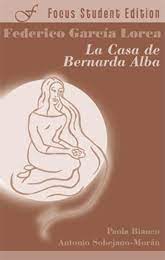
Image Courtesy of Hackett Publishing
Summary
Federico Garcia Lorca wrote the play "La casa de Bernarda Alba". It depicts the tale of Bernarda Alba, a wealthy and authoritarian widow who, upon the death of her second husband, imposes stringent rules on her five daughters. The drama examines issues of repression, desire, and limitations placed on women in a strongly patriarchal society. The fascinating drama, which is set in a small Spanish village, takes place within Bernarda's home, where arguments between the daughters develop as they battle cultural norms and their own repressed impulses.
Temas to Watch Out For
- La dualidad del ser
- La construcción del género
- El sistema patriarcal
- Las divisiones socioeconómicas
- La asimilación y la marginación
- La diversidad
- El machismo
- La tradición y la ruptura
- La trayectoria y la transformación
- El amor y el desprecio
- La comunicación o falta de comunicación
- La imagen pública y la imagen privada
6.2 El hombre que se convirtió en perro – Osvaldo Dragún
Summary
Osvaldo Dragn wrote the one-act play "El hombre que se convirtió en perro" (The Man Who Turned Into a Dog). The protagonist of the narrative is a man named César who, due to financial difficulty, decides to work as a performing dog in order to support himself. The play is a dark and humorous satire on how capitalism dehumanizes people and the desperate lengths people will go to in order to survive. The play examines issues of identity, power relationships, and the erosion of dignity in a culture that treats people like commodities through César's transformation into a dog.
Temas To Watch Out For
- Las sociedades en contacto
- Las divisiones socioeconómicas
- Las relaciones familiares
- Las relaciones de poder
6.3 "Prendimiento de Antoñito el Camborio en el camino de Sevilla” – Federico García Lorca
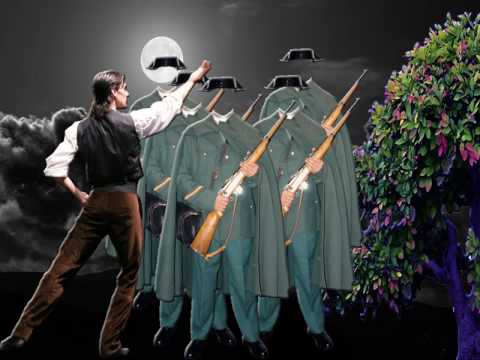
Image Courtesy of Diente de Leon
Summary
Federico Garcia Lorca wrote the poem "Prendimiento de Antoñito el Camborio en el camino de Sevilla." Antoñito el Camborio, a teenage gypsy who is kidnapped and murdered while traveling to Sevilla, is the subject of the story. The poem vividly and viscerally depicts Antoito's struggle and eventual demise, capturing the terrible and brutal character of his fate. Lorca investigates issues of exclusion, bigotry, and the disastrous effects of societal oppression with vivid imagery and forceful language.
Temas To Watch Out For
- Las sociedades en contacto
- Las relaciones de poder
- Las divisiones socioeconómicas
- El individuo en su entorno
6.4 "Walking around" – Pablo Neruda

Image Courtesy of Spill Words
Summary
Chilean poet Pablo Neruda wrote the piece "Walking around." Neruda explores the depths of his own existence and dwells on the complexity of urban life. He addresses themes of alienation, hopelessness, and the loss of uniqueness in his environment. He does this to leave the audience wondering about their own environment and satisfaction.
Temas to Watch Out For
- La dualidad del ser
- La construcción de la realidad
- El individuo en su entorno
- La introspección
6.5 “Balada de los dos abuelos” – Nicolás Guillén
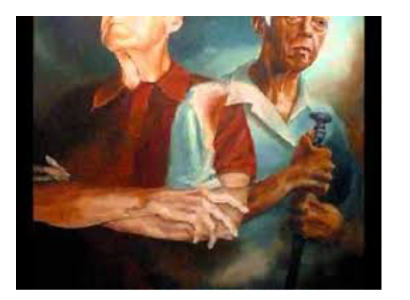
Courtesy of Weebly
Summary
Nicolás Guillén, a well-known Afro-Cuban poet, wrote the poem "Balada de los dos abuelos". The poem honors Guillén's two grandfathers, one of African descent and the other of Spanish lineage, and embraces his multicultural heritage. Guillén examines the difficulties of racial identity, colonial history, and the tenacity of the Afro-Cuban community using potent images and rhythmic language. The poem is a cry for togetherness that emphasizes the interconnectedness and shared humanity of all people, regardless of their backgrounds.
Temas to Watch Out For
- Las sociedades en contacto
- Las relaciones interpersonales
- El tiempo y el espacio
6.6 “Mujer negra” – Nancy Morejón
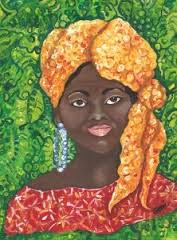
Image Courtesy of Weebly
Cuban poet Nancy Morejón is the author of the poem "Mujer negra". The poem honors Black women and the power, tenacity, and contributions they have made to society. While addressing the past and present problems Black women have faced, Morejón highlights the beauty and cultural diversity of Black women. The poem emphasizes the intersections of race, gender, and identity through vivid imagery and poetic language, asking readers to acknowledge and value the experiences and voices of black women.
Temas to Watch Out For
- Las sociedades en contacto
- Las relaciones interpersonales
- El tiempo y el espacio
6.7 "A Julia de Burgos” – Julia de Burgos
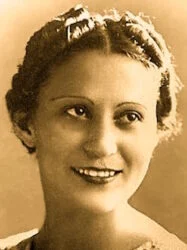
Image Courtesy of Literary Ladies Guide
Summary
The poem "A Julia de Burgos" was written by Julia de Burgos, a poet and activist from Puerto Rico. The poem pays emotional homage to Julia de Burgos, who is portrayed as a representation of fortitude, independence, and resistance. De Burgos addresses ideas of identity, liberation, and the fight for self-determination using fervent language and evocative symbolism. The poem acts as a reaffirmation of the poet's unique voice.
Temas to Watch Out For
- La dualidad del ser
- La construcción del género
- El sistema patriarcal
- La introspección
6.8 “Peso ancestral” – Alfonsina Storni
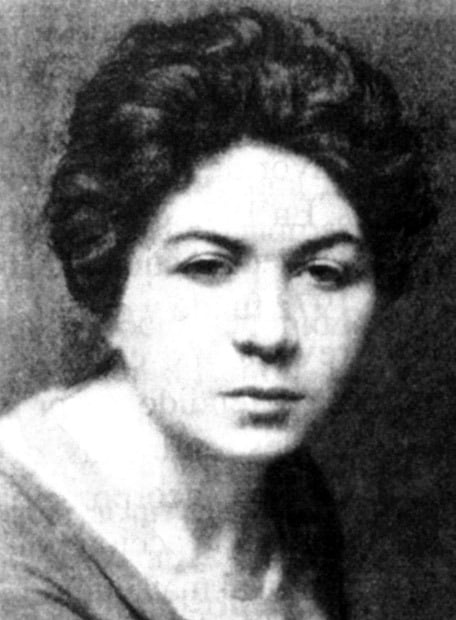
Image Courtesy of Genius
Summary
The poem "Peso ancestral" was written by Argentine poet Alfonsina Storni. The poem explores issues such as gender roles, societal expectations, and the pressures put on women. Storni investigates the weight of conventional norms and the urge to fit in, especially for women who are expected to play specific roles. The poem pleads for the freedom of women from repressive societal constructions and criticizes the patriarchal system with potent imagery and introspective language. "Peso ancestral" is an expression of Storni's defiance and a cry for women to reclaim their independence and escape the constraints of society.
Temas to Watch Out For
- La dualidad del ser
- La construcción del género
- El sistema patriarcal
- La introspección
The works studied in this unit continue to be relevant today, as they explore universal themes and issues that are still present in modern society. Additionally, the literary techniques and experimental forms used by these authors have had a lasting impact on the literary world and continue to influence contemporary writers.
Browse Study Guides By Unit
🏇Unit 1 – La época medieval
🛳Unit 2 – El siglo XVI
🖌Unit 3 – El siglo XVII
🎨Unit 4 – La literatura romántica, realista y naturalista
🤺Unit 5 – La Generación del 98 y el Modernismo
🎭Unit 6 – Teatro y poesía del siglo XX
🌎Unit 7 – El Boom latinoamericano
🗣Unit 8 – Escritores contemporáneos de Estados Unidos, y España

Fiveable
Resources
© 2025 Fiveable Inc. All rights reserved.